China is fast becoming the next world superpower, while India – with its vast young population, booming jobs market and burgeoning economy – is on the march. Meanwhile, Wall Street has plunged the world into the global financial crisis. In the West, economies are crashing, mortgages are defaulting, and the armies of unemployed are growing, while birth rates shrink and the population ages.
And America, which entered the new millennium as the world’s one superpower, is facing record debt, a shrinking middle class and an uncertain future.
Who are the world leaders in technology, science, manufacturing and the environment? Who cultivates the best students, and the brightest innovators? And where’s the intelligence in a culture that celebrates Snooki and endless Spiderman reboots over the classics?
After 500 years in the spotlight, the West just might have lost its way.
Speaking for the proposition will be The Australian’s economics editor David Uren, Asialink CEO Jenny McGregor and Professor Kenneth Chern, former director of Asian Affairs at the White House and current Professor of Asian Policy and executive director of the Swinburne Leadership Institute.
Speaking against the proposition are journalist/author/broadcaster Dr Susan Maushart; Dr John Lee, a foreign policy academic and China expert; and writer, academic and founding editor of The Asian Law Journal, Professor Tim Lindsey.
This event is also part of our series AMERICA, in which we explore the future of the superpower nation and the challenges it presently faces.
Too often, the big issues feel ill-served by parliamentary question time or the 24-hour news cycle. Big issues and bigger ideas deserve informed and passionate consideration. Beyond the soundbites, beyond the sloganeering, beyond the posturing, there’s the debate.
The Wheeler Centre and St James Ethics Centre combine once again in 2012 to bring you another series of Intelligence Squared debates.
Established in 2002, IQ2 has spread from across the globe, bringing the traditional form of Cambridge and Oxford Unions-style debating – with two sides proposing and opposing a sharply formed motion – to Melbourne Town Hall.
Featuring
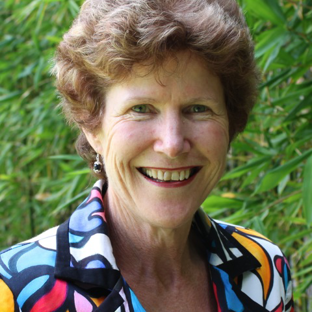
Jenny McGregor
Jenny McGregor is the founding CEO of Asialink at The University of Melbourne and founding Executive Director of the Asia Education Foundation. Under her leadership Asialink has become Australia’s largest non-government centre for the promotion of Australia-Asia relations, with an annual budget of over A$10 million and activities spanning education, the arts, leadership, health, and corporate and public programs.
Ms McGregor has been a member of the Boards of the APEC Women’s Business Advisory Committee and the Myer Foundation’s Beyond Australia Committee. She is currently on the Advisory Boards of the Dunlop Asia Awards, a member of the Executive of the Melbourne Confucius Institute and a member of the Board of Australian Volunteers International.
Prior to taking up her Asialink appointment in 1990, Ms McGregor worked as a political adviser and senior manager in Australia’s Federal and State governments. She then joined the Commission for the Future to research Australia-Asia relations. She has a BA (Hons) and Dip Ed from The University of Melbourne and holds the Peter Brice award for outstanding contribution to teaching and learning about the Asia-Pacific region.
David Uren
David Uren is Economics Editor with The Australian, where he has run the paper’s economics coverage since 2004, and is author of the new book on Australia’s relationship with China, The Kingdom and the Quarry, which explores the tension between our economic ties and our strategic fears.
He is also co-author of the book on the Rudd government’s management of the global financial crisis, Shitstorm. His career in journalism includes editing Business Review Weekly and the Asian business magazines, Asia Inc and Triple-A.
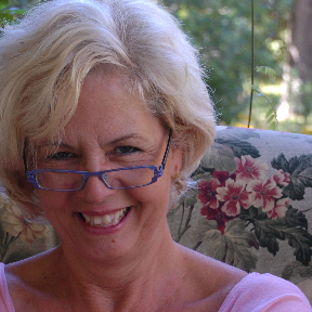
Susan Maushart
Journalist, broadcaster and recovering academic Dr. Susan Maushart is the author of five books, including the feminist classics The Mask of Motherhood and Wifework and the internationally acclaimed memoir and BBC Book of the Week The Winter of Our Disconnect (soon to be a minor motion picture).
As an independent producer for ABC radio, Susan’s popular series Multiple Choice and StoryCatcher were heard across Australia, and she has appeared as a commentator on The Today Show, Lateline, CNN, Fox & Friends and many, many others. Most recently, Maushart has lectured in media at Fordham University in New York City, where she blogs for the Huffington Post. The mother of three, Susan lived in Western Australia from 1986 to 2010, and now makes her second home - with hospital corners – on the East End of Long Island.
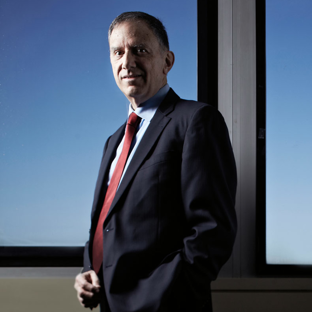
Kenneth Chern
Kenneth Chern is Professor of Asian Policy at Swinburne University and Executive Director of the Swinburne Leadership Institute. A former diplomat, he served as US Consul General in Perth, Deputy Consul General in Ho Chi Minh City, and Deputy Director of the Southeast Asia Desk at the Department of State.
Professor Chern also served in Beijing, Taipei, Hong Kong, Manila, and Cebu, and in Washington at the China, Japan, and Australia/New Zealand Desks. At the White House, as Director of Asian Affairs in the National Security Council, he helped organise the inaugural APEC leaders meeting hosted by President Bill Clinton. He won awards for his work in human rights, counterterrorism, and public diplomacy.
A speaker of Chinese, Vietnamese and French, Chern taught for ten years at the University of Hong Kong. He holds a BA from Brooklyn College, and an MA and a PhD in history from the University of Chicago.
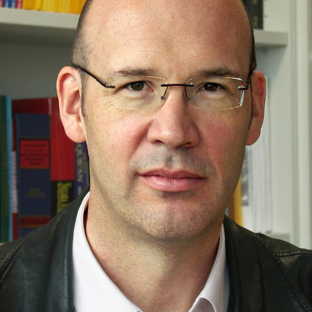
Tim Lindsey
Tim Lindsey is Malcolm Smith Professor of Asian Law and Director of the Centre for Indonesian Law, Islam and Society at the University of Melbourne. He is also chair of DFAT’s Australia Indonesia Institute and was a member of the Reference Group for the former National Asian Languages and Studies in Schools Program.
Tim holds the degrees of BA (Hons), LLB, BLitt (Hons) and PhD from the University of Melbourne. In 2006, he was awarded a five-year Federation Fellowship to research “Islam and Modernity: Syari'ah, Terrorism and Governance in South-East Asia".
Tim’s publications include Indonesia: Law and Society, Corruption in Asia, Chinese Indonesians and Law Reform in Developing and Transitional States. This year he will publish Islam, Law and the State in Southeast Asia and The Indonesian Constitution (with Simon Butt). Tim is also a founding editor of The Australian Journal of Asian Law.
Tim consults regularly with Indonesian and Australian government agencies and international aid organisations and maintains a practice as a barrister specialising in disputes involving Indonesian law. He has traveled regularly to Indonesia since 1976 and worked closely with Indonesian judges, police, prosecutors and lawyers. Tim speaks fluent Bahasa Indonesia.
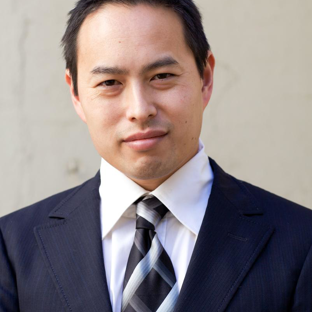
John Lee
Dr. John Lee is the Michael Hintze Fellow and Adjunct Associate Professor at the Centre for International Security Studies, Sydney University. He is also a non-resident Senior Scholar at the Hudson Institute in Washington DC.
An expert in China’s political-economy, East and Southeast Asian foreign policy and security competition, and US-China relations, Dr. Lee is regularly invited to brief Ministerial, Secretarial (and Deputy) level officials and senior military officials in the United States, Singapore, Malaysia, Indonesia, India, Malaysia and Australia; and is periodically invited to testify before US Congressional and Australian Parliamentary committees.
His articles are frequently published in the world’s leading policy and academic journals, and he has contributed hundreds of opinion pieces to over forty leading newspapers and magazines in America, Europe and Asia such as the Washington Post, New York Times, Financial Times, Times of London, Wall Street Journal, Global Times, Time, Forbes, Der Speigel, International Herald Tribune, Business Week, Newsweek in addition to all major newspapers in Australia.
He gained his first class honours degrees in Arts (Philosophy) and Laws from the University of New South Wales, and his Masters and Doctorate degrees from the University of Oxford whilst on a Chevening Scholarship.
